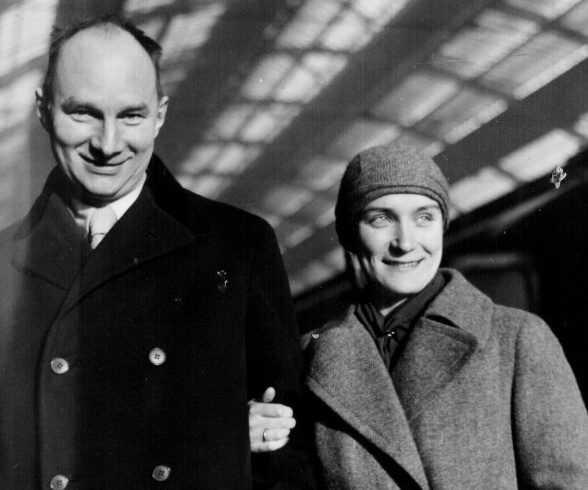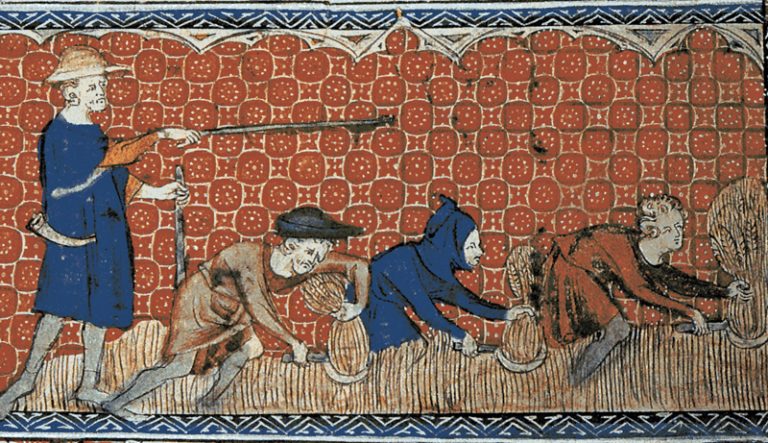Inherited Privilege: Socio-Cultural Feudalism

Despite a formal abolishment of political feudalism through the democratic revolutions of the last centuries, a form of economic feudalism has survived up to the current day. However, privilege is not only inherited economically, but to a large extent also socio-culturally.
Few people have stressed the importance of soci-cultural reproduction of privilege as much as Pierre Bourdieu. In a joint work “The Inheritors” with sociologist colleague Jean-Claude Passeron, the authors analyse how French students from farm-worker or industrial-worker backgrounds were not only far less likely to get into higher education overall, but also why even those lucky enough to become a university student were less likely to get into the more socially-rewarding subjects such as medicine. They show how cultural barriers can explain these disadvantages, where a pure focus on economic opportunities and barriers fails (given the availability of full tuition scholarships, etc). The sociological study tries to explain how “the objective chances of university entrance are forty times larger for a senior executive’s son than for a worker’s son.”[1]
The following elements give an idea about some forms of socio-cultural inheritance. They are what becomes socio-cultural capital for those who inherit it, and socio-cultural barriers for those who don’t[2]:
· Connections through a social and professional network
· Habitus, Taste, Style
· Codes of language and other symbolic behaviour
· Manners
· Cultural education around playing musical instruments, visiting theatre and concerts
· Traditions and rituals
· ‘Knowledge of nuances’ about intellectual values, novelties and fashions
· Psychological values such as self-esteem
Bourdieu usually distinguishes social, symbolic and cultural capital, others have added psychological capital as a further distinction. We are subsuming all such forms under the term socio-cultural capital (and socio-cultural feudalism where such capital is inherited unevenly), in opposition to economic capital and economic feudalism. In this view, there two ways how to inherit privilege: 1) in monetary terms, and 2) in non-monetary terms (socially, culturally, psychologically, …).
The inheritance of socio-cultural capitals permits a heir to move with confidence in success-determining circles and arenas such as schools, universities, cultural institutions and the world or business and politics. They can serve as identification devices signalling the origin from a certain background, which is valued consciously or (more often than not) subconsciously by teachers, professors, employers, customers, etc. of similarly elite background.
Education as equaliser of opportunities?
One of the essential claims of Bourdieu and Passeron is that education systems often don’t manage to reduce the cultural barriers, but instead increase them by reproducing, strengthening and favouring the very same forms of cultural distinction of economic and social elites. The educational systems presuppose certain forms of cultural capital and reward the existence of such.
The cultural capital reproduction thesis may be framed as follows:
1. cultural capital is inherited by children
2. cultural capital is then converted into educational credentials
3. educational credentials lead to socio-economic success
Step 1 and 3 may not be too controversial, but Step 2 does need some further explanation. How does cultural capital favour attainment of educational credentials? There are two main different conceivable directions:
· Cultural capital (unduely) increases the assessed ratings of students. Teachers may be prejudiced towards students who appear “cultivated” and can express a form of cultural education which may be similar to the teacher’s own milieu
· Cultural capital improves the skills and abilities necessary to perform well in the education system. Participation in cultural events such as concerts, theatre, museum visits, etc. leads to attainment of skills relevant for school.
It should be noted that the inequality-reproduction through educational systems happens largely invisible, informally, and unknown to the general public. The general opinion about (and task of) education systems is that it should reduce, not increase inequality. This is worrying given the role of educational systems as a legitimising factor of capitalist societies which are supposed to be equalising rather than class-reproducing.
We shall return to the role of education again in a seperate article analysing how the education system can indeed become a possible equaliser of opportunities.
Inherited Career Stimulus
In addition to the educational arena and life-span, it is conceivable that socio-cultural endowments also influence the careers of privileged individuals, beyond mere educational credentials. Possible mechanisms could be:
· Inherited professional networks which may
o Lead to direct hires from the immediate network
o Lead to the opening of doors, positive references and links
o Assist with orientation in the job market
o Give valuable advise
· Increased risk-taking (e.g. in the form of entrepreneurialism) due to an extended social security net, which can lead to increased financial gains. To be fair, this may constitute a mix of economic and socio-cultural transmission of advantages. However, to illustrate the social component in this case, we may imagine a child which cannot expect any inheritance as the parents have lost all their wealth through a company bankruptcy, but where the extended family is still wealthy and good-willing enough to form a reliable social security net.
· Higher chances of success in job interviews, promotions and even in dealing with customers or other business contacts due to a more confident management of the social codes required (and rewarded) in the business sphere. Habitus again playing a key role here.
Socio-Cultural feudalism today
Bourdieu and Passeron’s analysis of cultural capital in “The Inheritors” was based on empirical data of the educational system in France around the 1960s. Maybe times have changed 60 years later and cultural barriers have been broken-down, or at least reduced? Unfortunately, a review of recent empirical work suggest otherwise.
· In the Unites States, the chances to complete college for a student from a high social background are more than six times higher than for a student from a lower social background. The effect on earnings is more modest, but positive as well.[3]
· In Europe, recent research confirms how socioeconomic status is inherited and determines educational success. The more segregated the educational system (that is, the less even students from different socio-economic backgrounds are distributed across schools), the stronger this effect.[4]
· A study on Swedish students from 2016 observes that certain “patterns of social auto-reproduction are visible” in the areas of taste, body-oriented practices, lifestyle, avant-gard-culture and alike. However, a large part of acquired taste and lifestyle couldn’t be explained by social origin, potentially an expression of Sweden’s relatively egalitarian society. [5]
· For British students, a slightly older study from 1997 does find a considerable inheritance of privilege and socio-economic status through the channels of cultural capital, but emphasises that (financial) resource endowments does play a key role as well in determining (or better: preventing) social mobility.[6] This result is in line with other research which highlights that material resources play an equally large or larger role than cultural capital in the reproduction of social inqueality.[7]
· Bourdieu and Passeron’s inheritance of socio-cultural capital thesis was also confirmed for German students, but only for the earlier phases of education up until early adulthood. [8]
· Social capital in the form of “good” network of individuals of high socio-economic status has been found to be of decisive influence on income in the United States in a large and recent study of 2022.[9] The findings of this study also point to a remedy of inequality: By mixing up members from different socio-economic status (in terms of location of upbringing), members from lower socio-economic status can improve their situation and work against a perpetuation of social stratification.
· Not surprisingly, family, friends and other support networks have also been found to positively influence job search after job loss[10] and also for initial transition into the labour market[11], up to the degree of nepotism.
In summary, it seems fair to say that socio-cultural feudalism still exists today to a considerable degree. Socio-economic status is inherited from parents to children not only through direct financial inheritance, but also through transmission of social and cultural capital. Still, financial transmission of inequality remains a powerful factor next to the socio-cultural transmission, which is also the reason why it is at the center of our analysis.
In the debate about inheritance taxes, opponents sometimes refer to the existence of one form of injustice to justify another, e.g. by referring to the naturally unequal distribution of talents, intelligence or beauty across the population to justify or normalise the unequal distribution of financial inheritance. The argument then goes like: “Differences are natural. We can’t (and don’t want to) correct for nature’s lottery, do we? So we shouldn’t do so in the case of inheritance and accept different starting positions. Some people are lucky, some people are not. That’s life.”
Our approach is a fundamentally different one: We are referring to the existence of socio-cultural feudalism not to justify or normalise economic feudalism. The intention and argument is the opposite: Because there is a considerable amount of unfair transmission of privilege through socio-cultural inheritance, how can we tolerate transmission of financial inheritance on top of this? Additionally, socio-cultural inheritance is complex, happens often invisible and unconscious and is notoriously difficult to control, whereas transmission of economic capital is (relatively) transparent and easy to control through taxation.
Further Reading
[1] Bourdieu and Passeron (1979): “The Inheritors: French Students and Their Relations to Culture”,University of Chicago Press, p. 26
[2] See Vogt (1978): “The Inheritance and Reproduction of Cultural Capital”, The Review of Education, 4:3, 219-228, http://dx.doi.org/10.1080/0098559780040304 for a review and summary of Bourdieu and Passeron’s work; and Bublitz (2022): “Die verborgenen Codes der Erben: Über die soziale Magie und das Spiel der Eliten”. Transcript
[4] Burger (2019): “The socio-spatial dimension of educational inequality: A comparative European analysis”, Studies in Educational Evaluation. doi.org/10.1016/j.stueduc.2019.03.009
[5] Börjesson et al. (2016): “Cultural capital in the elite subfield of Swedish higher education”. Poetics Volume 56, June 2016, Pages 15-34. https://doi.org/10.1016/j.poetic.2016.02.004
[6] Savage and Egerton (1997): “Social Mobility, Individual Ability and the Inheritance of Class Inequality”. Sociology, Vol. 31, No. 4 (NOVEMBER 1997), pp. 645-672. https://www.jstor.org/stable/42855857
[7] Sullivan (2001): „Cultural Capital and Educational Attainment“. Sociology 2001 35: 893. http://soc.sagepub.com/content/35/4/893
[8] Georg (2004). “Cultural Capital and Social Inequality in the Life Course” European Sociological Review, 20(4), 333–344. doi:10.2307/3559565
[9] Chetty et al. (2022). “Social capital I: measurement and associations with economic mobility”. Nature volume 608, pages108–121. https://www.nature.com/articles/s41586-022-04996-4





